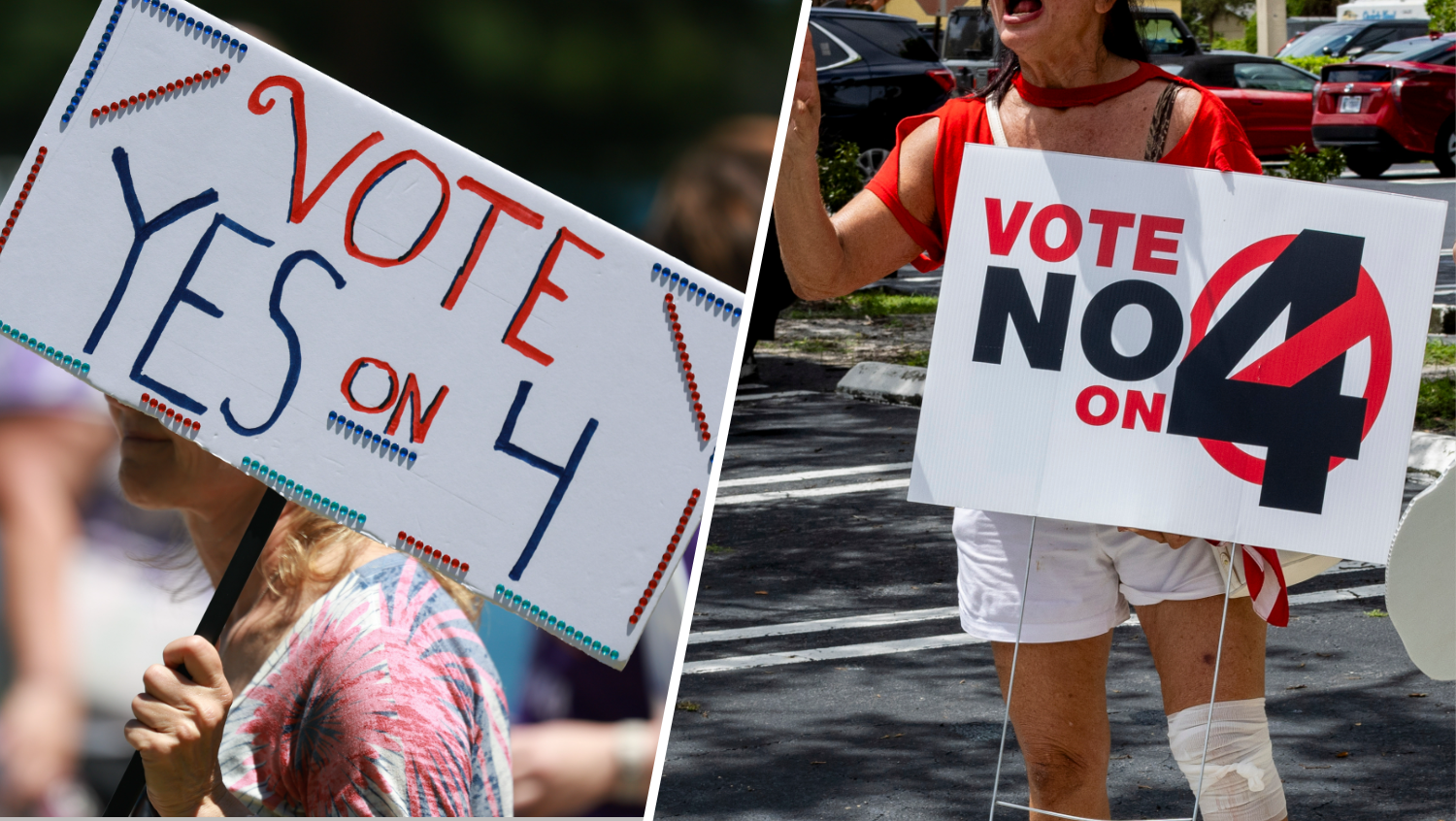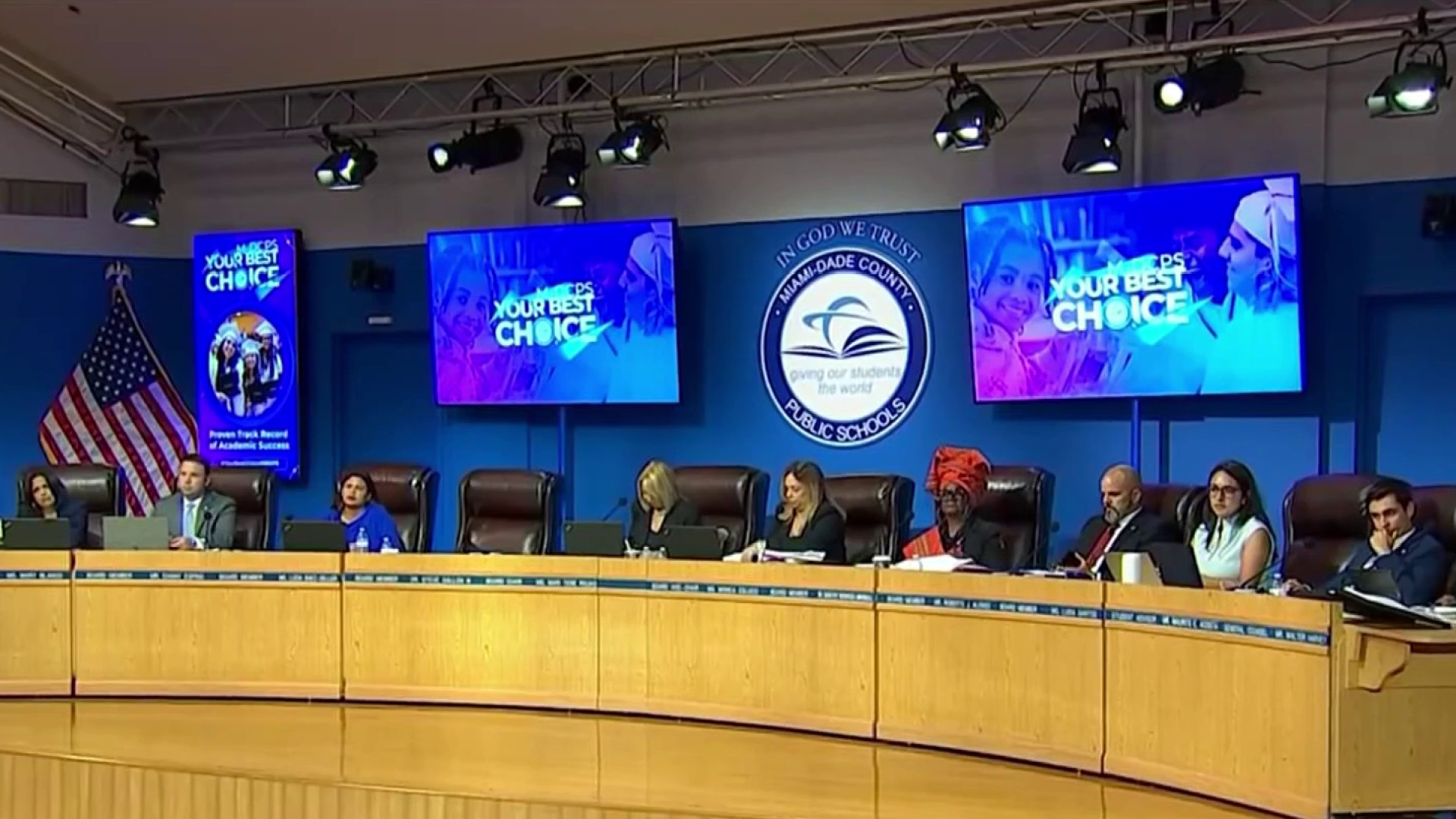What to Know
- Large marijuana companies support Florida’s Amendment 3, which would legalize recreational marijuana if 60% of voters approve it in November. Florida election law allows companies to financially back ballot measures.
- The measure says medical marijuana treatment centers, or other state licensed entities, will be able to sell recreational marijuana products without criminal or civil liability. It does not establish a monopoly, which is already prohibited by federal law.
- If approved, the measure wouldn’t take effect for 60 days and the Florida Legislature would determine processes for entities to acquire licenses to sell recreational marijuana. The state could license additional medical marijuana entities, and other companies.
In November, Florida voters won't be asked to vote just for the next president of the United States — they will also decide whether the state should legalize recreational marijuana.
Opponents of Florida’s Amendment 3 claim the measure to legalize cannabis would hand marijuana megacorporations a monopoly.
"Giant corporations don’t do things out of the goodness of their heart, they do things to make money," a narrator says in a "Vote No on 3" TV ad airing statewide. "And that’s exactly why they wrote Amendment 3. Marijuana mega corporations spent 60 million bucks putting Amendment 3 on your ballot. Why? It entrenches their monopoly, bans homegrown pot and gives special licenses to corporations."
The Hurricane season is on. Our meteorologists are ready. Sign up for the NBC 6 Weather newsletter to get the latest forecast in your inbox.
The ad concludes: "They wrote it. They rigged it. And they are hoping you fall for it. Amendment 3 isn’t the marijuana amendment, it’s the monopoly amendment."
Amendment 3, sponsored by political committee Smart & Safe Florida, would allow adults ages 21 and older to "possess, purchase, or use marijuana products and marijuana accessories for non-medical personal consumption by smoking, ingestion, or otherwise."
Trulieve, one of Florida’s largest medical marijuana companies, has contributed $93 million to the committee since 2022 — that’s the bulk of the committee’s $101 million raised so far, Sept. 24 campaign finance data shows. Other cannabis companies, including Curaleaf, Verano and Cresco Labs, have also contributed to support the committee backing the measure.
Trulieve’s contribution is hefty, but it’s not unusual for corporations to raise and spend large sums of funds on ballot measures, election law and campaign finance experts told PolitiFact. Nor is it unusual, they said, for opponents to attack corporate interests in ballot campaigns to evoke suspicion of their motivations.
"Companies that stand to benefit from the outcome of a ballot measure can pour millions into ballot measure fights. Just because millions are being spent does not mean the ballot measure is rigged," said Ciara Torres-Spelliscy, a Stetson University law professor.
Daniel Smith, a University of Florida political science professor, said both campaigns are pulling from a familiar playbook: "Florida is a big state and it costs lots of money to ‘lobby’ for or against a statewide measure."
The amendment itself does not eliminate marijuana market competition. If approved by at least 60% of voters, the Florida Legislature would be able to issue additional licenses to expand the list of marijuana sellers and distributors.
Vote No on 3 argues that, although the state is allowed to approve licenses for new companies, it isn’t required to do so under the amendment. This exacerbates monopolistic concerns, the group’s counsel said in a letter shared with PolitiFact, by allowing established medical marijuana distributors in Florida — which would be eligible for recreational licensure should the amendment pass — to corner the market.
What Amendment 3 would do
The measure’s summary reads:
"Allows adults 21 years or older to possess, purchase, or use marijuana products and marijuana accessories for non-medical personal consumption by smoking, ingestion, or otherwise; allows Medical Marijuana Treatment Centers, and other state licensed entities, to acquire, cultivate, process, manufacture, sell, and distribute such products and accessories. Applies to Florida law; does not change, or immunize violations of, federal law. Establishes possession limits for personal use. Allows consistent legislation. Defines terms. Provides effective date."
Florida has 25 licensed medical marijuana companies, referred to by law as "medical marijuana treatment centers."
The amendment says these centers, or other state licensed entities, including its agents and employees, will be able to sell recreational marijuana products without criminal or civil liability under Florida law.




